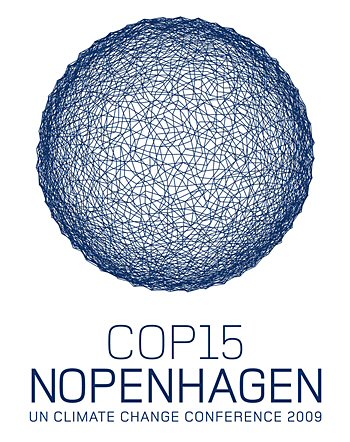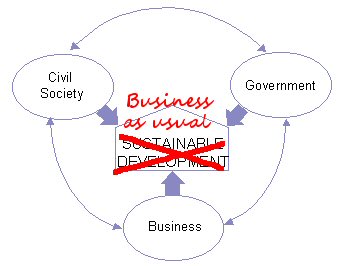Nopenhagen
Posted by keith on 10th November 2009
No surprises; no surprises at all. As the world’s “leaders” gear up to converge on the vapourware that is the COP-15 Copenhagen Climate Summit, their objectives seem to be diverging: different governments are being seen as wanting different things, with the less-industrialised nations pointing the finger at (giving the finger to?) the industrial world, essentially saying, “You made the mess, you clean it up!” Among the industrial nations, Canada has no intention of even pretending to do anything, Europe is wading around in a greenwashing miasma of its own making, and the USA doesn’t quite know what to do. The Independent, on Friday 6 November, put the situation like this:
British Government officials believe there is no hope of signing a legally binding climate change treaty in Copenhagen next month.
The positions of major world powers are so far apart that another year or even more may be needed to negotiate a world climate treaty, senior British sources said at talks in Barcelona, which end today.
Writing today for The Independent the Chancellor, Alistair Darling, also admits that a deal in Copenhagen is now unlikely. “The barriers to agreement on climate finance remain substantial,” he writes. “Even if countries agree the levels of finance, few will want to hand over money if they lack confidence in the means of delivering it.”
The development has disconcerted observers at Barcelona, where it has become clear over the course of this week’s talks that countries are still so far apart on how to act on climate change – with the American position the farthest from everyone else – that the most that Copenhagen can now produce is a “political” agreement on climate change, which would not be legally binding like the current climate treaty, the Kyoto protocol.
But yesterday’s frank admission, for the first time, that it might take another year or even longer to produce a proper treaty, after 10,000 officials from 192 countries have already spent two years working to a Copenhagen deadline, showed just how bogged down the negotiating process has become.
Although there are various stumbling blocks, there is no doubt that the continued lack of a serious American offer on cutting its greenhouse gas emissions and providing climate finance for the developing nations – the bill which might provide them is stuck in the US Senate – is the principle obstacle to progress. “Copenhagen is one of the most important meetings in human history. But the politicians seem determined to blow it,” said Joss Garman, climate campaigner for Greenpeace.
Leaving aside the Greenpeace comment for the moment, you would think that even the industrial nations are oceans apart; yet anyone who has an awareness of how Industrial Civilization operates will be looking at this and simply thinking, “Business as usual.” And so we should, because neither Copenhagen, nor its successor Mexico City are the slightest bit relevant in the real battle against climate change. This battle, when it is played out, will be a silent, local, underground battle against the forces that comprise every government engaged in the so-called “negotiation” process. What the governments of the world are negotiating is simply the continuation of the industrial machine in the face of global environmental change, but almost no public opposition.
We are so brainwashed into thinking that the system has it right, that it comes as no surprise to hear people like Joss Garman referring to Copenhagen as, “one of the most important meetings in human history”, as though anything that will have any impact on climate change was ever expected to come out of it. We pin our hopes on summits in this way because we have grown up to accept the false authority of “our leaders”, and to deny that we can do anything significant ourselves. As I wrote in “Time’s Up!“:
The system has legitimized all its efforts to prevent change and suppress opposition because the vast majority of people who are subjected to its activities are fully paid-up members of Industrial Civilization. It is ‘right’ that civilization maintains its stability because without stability, civilization collapses and can no longer impose its will upon the population. Does that sound like a coherent argument to you? In all truth, that really is the best argument civilization has for its continued existence: it has to be maintained because it has to be maintained. Even a heroin addict, shooting up to get the fix that he agonizingly craves, knows that his habit will eventually kill him. Even a lifelong nicotine addict will admit that smoking is bad for her and she should stop. Hands up if you think Industrial Civilization should be stopped.
Every environmental organisation, every lone campaigner, every ordinary member of the public that will be holding their breath as the laughably-titled “negotiations” wrap up, is in denial of the reality that we are doomed so long as Industrial Civilization continues to dominate the globe. Copenhagen is just one more pebble in that river of denial.
Posted in Advice, Government Policies, NGO Hypocrisy, Political Hypocrisy | 1 Comment »












